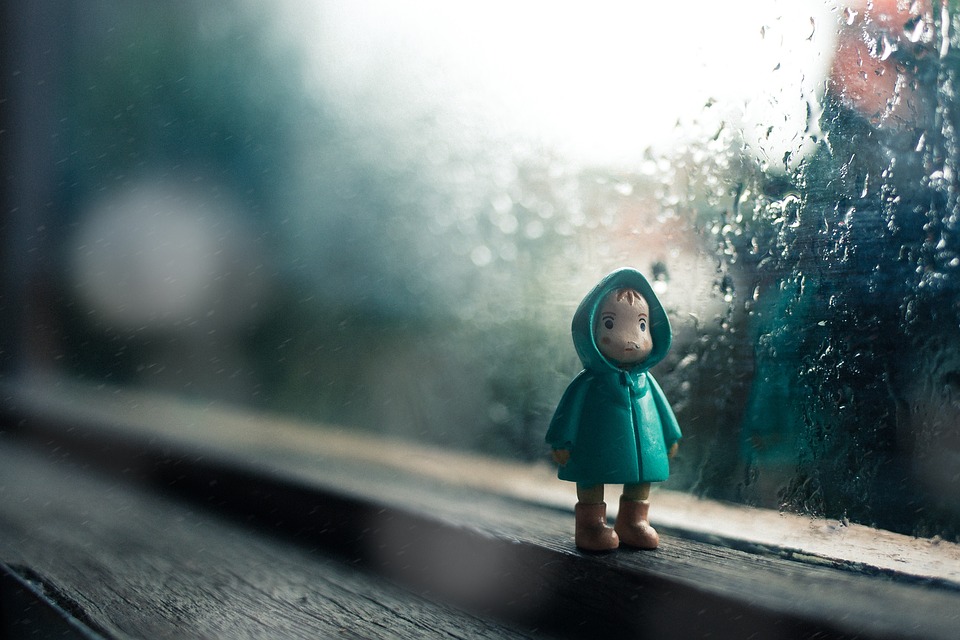
Body + Mind is reader-supported. We may earn an affiliate commission when you buy through some of the links on our site.
Let’s face it — today’s headlines are overwhelming. Our phones alert us to everything going on in the world, however sad or shocking the events are. Often, this news includes a story about a major natural disaster, and the devastation that follows can be stressful and upsetting to see. It’s no wonder new conditions like climate change anxiety disorder are becoming a thing. But what is this?
According to the United Nations, things are set to get worse. In a report released in October 2018, the UN predicts the world could face extreme climate-change side effects, including food shortages, raging wildfires and the destruction of coral reefs. Even more terrifying, it could happen as soon as 2040, which is within many of our lifetimes.
If this news sends a chill down your spine, you are not alone. With Earth Day being yesterday, you may be feeling even more upset about the state of our planet than usual. There’s such a thing as climate change anxiety disorder, and it’s affecting more and more people as the weather shifts more and more severely.
There’s a good chance you’ve already experienced the symptoms of anxiety in your lifetime. In women, it tends to manifest similarly — they may feel nervous or on-edge about a present or imagined stressor. Their bodies respond accordingly, sending adrenaline pumping through our veins in a fight-or-flight-type response, even if there’s no current threat. A panic attack might also follow, which can be so intense and painful that some mistake theirs for heart attacks.
Climate change anxiety disorder might feel similar to regular anxiety, but its root cause is unique. Broadly speaking, people have grown anxious as they have become more aware of the changes occurring in the environment and on the earth. It’s extra stressful considering humans are responsible for much of the chaos.
More specifically, the American Psychological Association has broken down climate change anxiety disorder into two categories. Some feel it because there’s a natural disaster on the horizon, or because they have recently survived a hurricane, flood, tornado, wildfire, etc. Then, there are those who worry about the major changes that will come with climate change — this category is more general and overarching, but can cause the same stress response.
Most of us already deal with anxiety — it’s one of the most common female health issues, after all. Typically, climate change anxiety will come in and pile onto the anxiety you already have, whether you feel the tension from work, personal relationships, finances, health, etc.
Fortunately, you can manage to tamp down a lot of these stressful situations, at least in your mind. That’s because you have control over them. For instance, if you’re stressed about work, you can figure out why, and you can do something to change at least part of what’s bugging you. With a big presentation on the horizon, you can start researching early and preparing what you’ll say to ease the nerves.
But with climate change anxiety disorder, we have no sense of control. We’re just watching the weather shift violently, and we can’t do much to change it. This makes it even more stressful for us. It also explains why some people have no desire to help lessen the effects of climate change — their coping mechanism is to block out the bad news. They can’t handle the stress that comes with rising ocean levels, warmer temperatures and worse weather, so they tune it all out.
It’s not going to be simple to ease the symptoms of your climate change anxiety disorder. However, there are steps you can take to make yourself feel better about the state of the earth and your place within it.
One of the most important ways to combat anxiety of any kind is with a strong support system. Having friends and family members in your corner will make you feel more secure. Plus, if you know your loved ones will be there for you no matter what, you’ll know you have someone to lean and help you worry a bit less about what’s to come.
To that end, you can empower yourself to make a change. Start researching the ways you can help lessen the effects of climate change. Find volunteer organizations that lead community projects with the same goal. If you can’t find a hands-on way to help, donate to an eco-friendly charity or a politician who will fight for environmental causes in Congress.
Finally, you can ease your mind with storm preparation. If you fear a natural disaster hitting, come up with an evacuation plan that’ll get you and your family out of the danger zone as soon as possible. You might also want to gather supplies you’ll need to endure a natural disaster at home — think batteries, bottled water, first-aid supplies, etc.
Anxiety tends to develop fully in your 20s, so it’s normal to feel the way you’re feeling. But don’t sit back and let negative or fearful thoughts disrupt a peaceful state of mind. Instead, try making positive strides for yourself and the earth, and you’ll start feeling a lot better about the state of the world — and the state of your health.